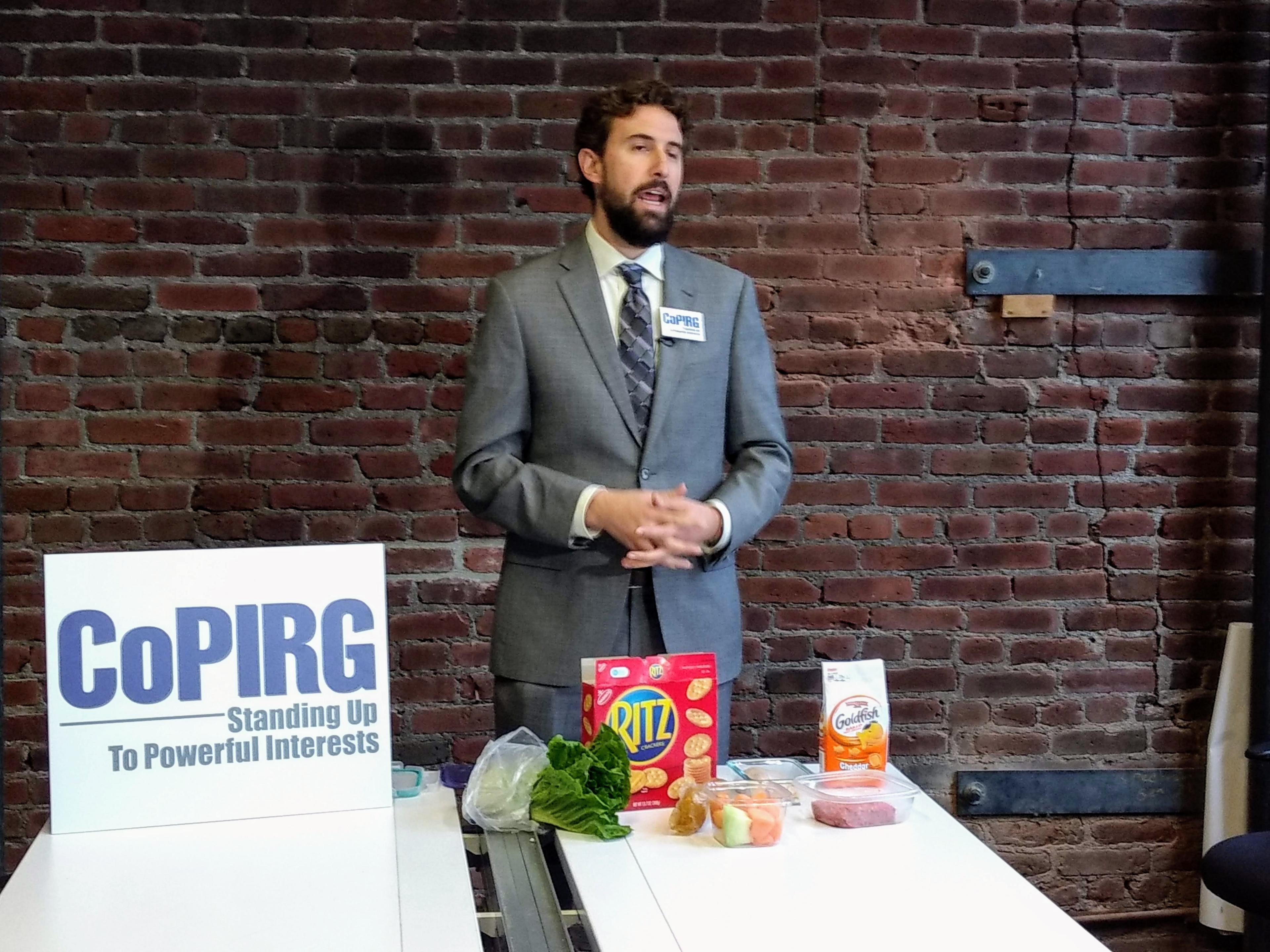More than 5,000 Coloradans were sickened by contaminated food between 2013 and 2017, leading to nearly 1,000 hospitalizations and 19 deaths, the head of a state consumer watchdog said Friday.
Danny Katz, director of the Colorado Public Interest Research Group (CoPIRG) Foundation, gave a local perspective on a national study by the U.S. PIRG Education Fund. PIRG used data, some obtained through a Freedom of Information Act request, from the Centers for Disease Control and Prevention, the Food and Drug Administration and the Department of Agriculture to create a picture of food safety in America since the Food Safety Modernization Act became law in 2011.
The CDC estimates that across the United States, one in six people are sickened by listeria, salmonella and other contaminants in food every year. Most people recover quickly, but the bacteria can cause serious illnesses, including kidney failure. The CDC adds that 128,000 of the people who get food-borne illnesses end up in the hospital and 3,000 of them die.
U.S. PIRG found an overall 10 percent increase in food recalls — triggered by concerns about allergens as well as food-borne illnesses — between 2013 and 2018, including an 83 percent increase in Class I recalls of meat and poultry. Class I recalls are the most serious, instituted out of concern eating the food could cause health problems or even death. Vegetarians might be relieved to know that Class I recalls of produce and processed foods decreased by 12 percent since the passage of the Food Safety Modernization Act, which the FDA says shifts the focus from responding to to preventing illness.
The overall increase may be because we’re paying more attention and have better technology to track the problem.
“But it still identifies that we have a problem,” Katz said at a Denver news conference.
PIRG called for such steps as improving monitoring of water used to irrigate crops, penalizing companies that continue to sell recalled food and instituting clear consequences for repeat offenders.
Jon Strauss, who coordinates manufactured food and product recall programs for Colorado’s Department of Public Health and Environment, said the state instituted its own inspection regime about four years ago, in part in response to a deadly 2011 listeria outbreak linked to cantaloupes grown in southern Colorado. Across the country, more than 30 people were killed and more than 140 others were made ill by the outbreak that federal regulators blamed on dirty water and other conditions at a farm’s packing house.
The outbreak led to two Colorado cantaloupe farmers pleading guilty in 2013 to misdemeanor charges of introducing adulterated food into interstate commerce. They were sentenced to five years’ probation and six months of home detention and ordered to each pay $150,000 in restitution and perform 100 hours of community service.
Strauss said in a telephone interview that the state’s goal was to visit every food manufacturing business in Colorado at least once every five years. Before starting its program, inspections were done only at companies designated by the FDA or because of a federal recall.
He said the program does not give the state the ability to fine companies, but it can force them to suspend manufacturing and recall food.
“More often than not we have the ability to stop it before it gets too bad,” Strauss said. “If it comes to that (a recall), then we’ve waited too long or didn’t find out about a problem soon enough.”
“Our agency as well as our partners in FDA are certainly doing our best to keep food safe in Colorado at least,” Strauss said.
But CoPIRG’s Katz said, “It’s not just something that Colorado can address. We need action on a federal level.”











